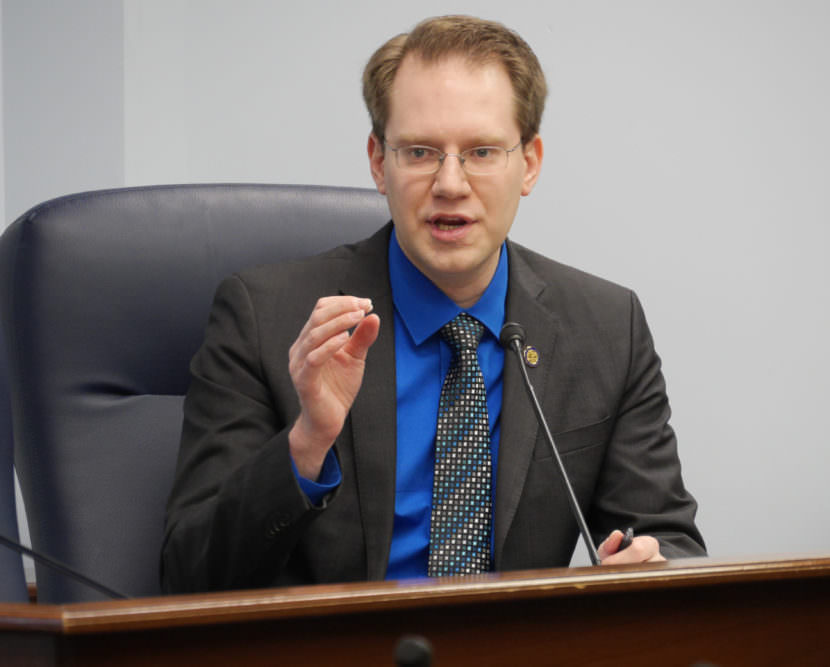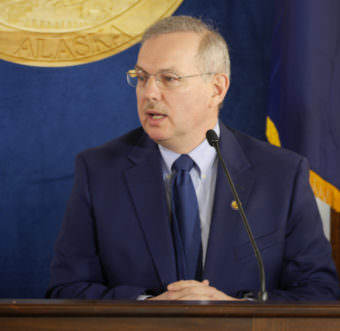
House members from both sides of the aisle have put forward new ideas to balance the state government budget into the future.
The co-chairmen of the House Finance Committee revised their plans to introduce an income tax to Alaska for the first time in nearly four decades.
Instead of basing the tax on 15 percent of residents’ federal tax liability, the revision to House Bill 115 would introduce new tax rates.
Co-chair Homer Republican Paul Seaton said public testimony opposed to basing the tax on the federal liability led to the change. It would instead be based on a person’s income, but exclude Permanent Fund dividends and $4,000 per person.
“When the testimony was pretty much that we should go to adjusted gross income, the administration had had a consultant that had worked on an adjusted gross tax bill earlier, and so some of that language has been incorporated in here,” Seaton said.
The income tax would start at $10,300 for a single person, and $22,600 for a couple. The rates would range from 2.5 percent at the low end to 7 percent for taxable income above $250,000 for a single person and $500,000 for a couple.
Republican House minority caucus members also put forward a long-term budget proposal. The plan includes larger Permanent Fund dividends than the plan the Senate passed. And it includes deeper spending cuts than the House is considering.
The bill would still leave a several hundred million dollar gap in the budget.
Anchorage Rep. Lance Pruitt said he proposed the bill to make sure that residents who felt excluded from the process were represented. They include Matanuska-Susitna Borough residents.
“The Mat-Su Valley has 100,000 people,” Pruitt said. “Sometimes I was feeling on this issue that they might not actually have been heard — that they have some concerns — and so I felt that we couldn’t just push that group of Alaskans and set them to the side.”

House Speaker Bryce Edgmon said the House Finance Committee will advance legislation that will close the budget gap based on all four ideas that brought his caucus together – drawing from the Permanent Fund changes, reducing PFDs, raising revenue, and cutting spending.
“You need to have all those pieces in place and absent any of those pieces, we’ve only done part of our work this session,” Edgmon said.
The state budget proposal was stuck in the House this week. While the body voted to pass the budget on Monday, the House minority exercised its right to ask for the vote to be reconsidered. The budget came up again Friday, the minority didn’t repeat its request for reconsideration, so the bill was sent over to the Senate.
The House Finance Committee will hear public testimony on long-term budget plans next week. The Senate Finance Committee will discuss the Senate version of the budget.
Andrew Kitchenman is the state government and politics reporter for Alaska Public Media and KTOO in Juneau. Reach him at akitchenman@alaskapublic.org.




